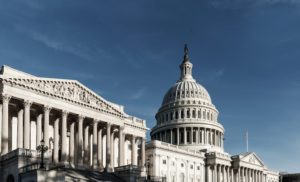
President Trump restricts agencies from issuing guidance documents, immigrants must prove they have healthcare to enter the US, and more…
IN THE NEWS
- President Donald J. Trump signed a pair of executive orders restricting agencies from explaining what a regulation may mean through guidance documents and requiring agencies to increase public awareness of the rules they enforce. Office of Management and Budget Deputy Director Russ Vought said the orders will protect “American families from unlawful government regulations and abuse.” James Goodwin, a policy analyst with the Center for Progressive Reform, reportedly criticized the notion that the orders will help industry because “the primary function of guidance is to alleviate regulatory uncertainty, which is a huge plus for industry.”
- President Trump ordered U.S. immigration authorities to deny entry to immigrants who “financially burden the United States healthcare system.” Under the order, immigration visa applicants must show that they will be covered by an eligible health care plan within 30 days of entering the country or can otherwise afford reasonably foreseeable medical costs. Southern Poverty Law Center interim president Karen Baynes-Dunning characterized the order as an “attempt to restrict immigration to only the wealthy” and accused the Trump Administration of “demonizing immigrants.”
- The Bureau of Land Management (BLM) announced that it is reopening federal land in California to oil and gas drilling for the first time since 2013. The amended oil and gas plan, which BLM says supports President Trump’s 2017 executive order on promoting energy independence, not only identifies the land available for drilling but also provides lease limitations designed to protect natural resources. California Attorney General Xavier Becerra first criticized the plan when BLM proposed it in May, saying that “we don’t need to jeopardize our health or environment to develop the energy sources we need.”
- The U.S. District Court for the Southern District of New York ordered President Trump to release eight years of tax returns. Judge Victor Marrero rejected the argument that a sitting president could not be investigated, calling the claim “repugnant to the nation’s governmental structure and constitutional values.” The U.S. Court of Appeals for the Second Circuit issued an administrative stay to consider the arguments on appeal. Because the U.S. Constitution is silent on whether a sitting president can be criminally prosecuted, the case may go to the U.S. Supreme Court.
- The United Food and Commercial Workers (UFCW) sued the U.S. Department of Agriculture (USDA) over a new rule changing inspection standards for pork processing plants. The UFCW argues that the rule, which eliminates maximum production line speed and reduces the number of line inspectors, will result in an increase in worker injuries. Leo Kanne, President of UFCW Local 440 in Iowa, suggested that the rule would also “erode the quality and safety of the food we make and feed to our own families.” USDA Secretary Sonny Perdue said that the rule would maintain food safety “while eliminating outdated rules and allowing for companies to innovate.”
- The Office of the U.S. Trade Representative announced an agreement with Japan that will reduce Japanese tariffs on U.S. agricultural exports and reduce barriers to digital trade. Iowa Lieutenant Governor Adam Gregg called the deal “a win for Iowa producers, and the world-class products we can provide.” Comparing the deal to the Trans-Pacific Partnership that the United States left in 2017, Michael Dykes, president and CEO of the International Dairy Foods Association, reportedly pointed out that “it’s probably 80 percent of what we would have gotten in TPP.”
- California Governor Gavin Newsom approved a law that will allow Californians to access two months’ supply of the HIV-preventing drugs, pre-exposure prophylaxis (PrEP) and post-exposure prophylaxis (PEP), without a prescription. “Recent breakthroughs in the prevention and treatment of HIV can save lives,” Governor Newsom said, adding that “all Californians deserve access to PrEP and PEP.” The law goes into effecton January 1, 2020.
- The U.S. Office of the Director of National Intelligence released an October 2018 Foreign Intelligence Surveillance Court opinion that found that certain Federal Bureau of Investigation (FBI) surveillance practices contravened the Foreign Intelligence Surveillance Act and the Fourth Amendment. The court found that government personnel conducted improper searches on surveillance databases and that the FBI’s procedures for identifying which searches involve U.S. citizens fell short of statutory and constitutional requirements. After the ruling, the FBI modified its practices to comply with the law.
- New York Attorney General Letitia James reportedly met with officials from the U.S. Department of Justice to discuss the state’s antitrust investigation of Facebook, prompting speculation that the Justice Department may join the investigation. A bipartisan coalition of approximately 40 states have joined with New York in its investigation of the social media giant. The investigation concerns include both unfair competition practices and harm to consumers’ privacy.
WHAT WE’RE READING THIS WEEK
- In a forthcoming article for the Harvard Law Review, University of San Diego School of Law Professor Mila Sohoni argued for the constitutionality of the “universal injunction”—a court ruling that blocks the government from enforcing a law against anyone, not just the plaintiff. Noting that the Supreme Court has deployed the universal injunction as far back as 1913, Sohoni argued that if the Supreme Court possesses the authority to issue a universal injunction under Article III of the Constitution, so too must a lower court. Moreover, in light of the rich history of universal injunctions and the important role such orders have played in checking executive power, Sohoni suggested that we should be skeptical of proposals to strip lower courts of their injunctive power.
- In an article published in the Administrative Law Review, Matti Rose Vagnoni of American University Washington College of Law argued that the U.S. Food and Drug Administration (FDA) should ban the sale of “fruity and sweet flavored e-liquids” to teenagers. Although e-cigarette manufacturers claim that their products can help break tobacco addictions, Vagnoni highlighted a concern that e-cigarettes could become a gateway to tobacco products for young people. Under the Obama Administration, Congress passed the Family Smoking Prevention and Tobacco Control Act, which Vagnoni said gives FDA the authority to regulate e-cigarettes.
- In a report for the Manhattan Institute, Jason Delisle of the American Enterprise Institute argued that the current federal student loan program is needlessly complex and difficult to navigate. Delisle proposed changes to the program that would cap loan amounts and streamline the repayment process, making the program easier to understand for borrowers and repayers alike. Repayment through income withholding similar to federal taxes, and based on an income-proportional sliding scale, would create greater predictability and stability for all parties, Delisle wrote.
FLASHBACK FRIDAY
- In a previously published article for The Regulatory Review, Richard J. Pierce Jr., a professor at the George Washington University School of Law, discusses how President Trump’s approach to regulatory reform differs dramatically from the approach of President Ronald Reagan. Although President Reagan loosened some environmental regulations, he also ordered the removal of lead from gasoline because, as Pierce points out, the benefits exceeded its costs. According to Pierce, President Trump, however, has repealed environmental regulations even if the benefits exceed the cost.



